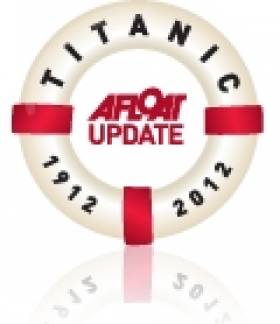Displaying items by tag: Queenstown Ireland
Photo Exhibition Includes Cobh’s ‘Titanic’ Pier
#PHOTO EXHIBITION -'The Pier' a collection of images created by French photographer Charlie Jouvet was launched this evening at Alliance Francaise, Dublin and continues into next month, writes Jehan Ashmore.
The images portrayed capture a meditative journey from the centre of the island of Cobh to the sea and features the town's former White Star Line pier. It is from this pier that liner tenders took the last passengers to board the R.M.S. Titanic which was anchored offshore.
Jouvet created the images while in residency with the Sirius Arts Centre in Cobh where there have been calls to preserve the historic 19th century pier also known locally as the 'Heartbreak' Pier as many emigrants departed Ireland for the last time and to seek new lives abroad.
Constructed of timber, the pier is in a perilous condition and according to experts could collapse unless urgent funding is found, as previously reported on Afloat.ie
The Berlin-based photographer has exhibited in his native France and also in Cambodia, Germany, Poland and Switzerland. His most recent work was at the PhotoPhnomPenh Festival which was held last November.
The Dublin exhibition continues to 21st April and is open to the public (free of charge) at Alliance Française, 1 Kildare Street, Dublin 2. For further information Tel: (01) 676 1732 and opening hours visit www.alliance-francaise.ie/gallery/
Cobh’s ‘Titanic’ Pier Could Collapse
#TITANIC- In the centenary year of commemorating the R.M.S. Titanic, the pier from where her last passengers boarded at Cobh (Queenstown) is in danger of collapsing unless funding is made available to carry out immediate preservation reports The Irish Times.
The 19th century pier constructed of timber is one of the most tangible links between the town and the liner which anchored offshore and where passengers boarded by tenders.
In addition many emigrants also trundled the pier's planks to depart Irish shores for the final time on ocean-going journeys to the four corners of the world in an effort to start new lives.
To read more about the story click HERE.

























































